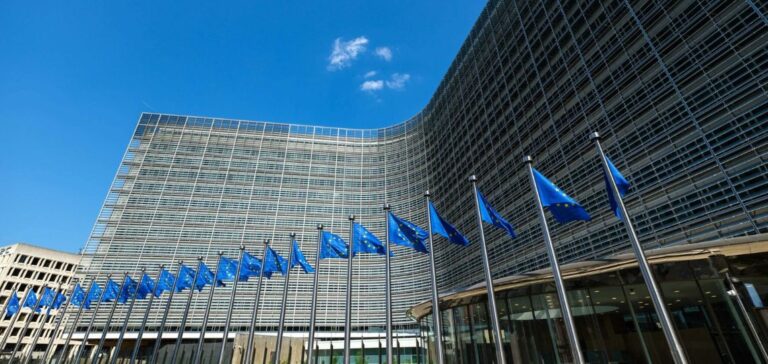The European Commission urges France to review its energy strategy, pointing to a worrying delay in the development of renewable energies.
While the European Union is aiming for a 42.5% share of renewables in its energy mix by 2030, France is far from achieving this ambition.
The Commission’s annual report, presented by Energy Commissioner Kadri Simson, highlights the significant shortcomings of France, which has failed to meet the 23% renewable energy target set for 2020.
France: Targets to review and strategy to adjust
France’s situation is all the more critical in that its Plan national intégré énergie-climat (Pniec), submitted at the end of 2023, calls for only 33% renewables by 2030.
This is well below the 44% required by the 2018 European directive.
The French authorities have been battling against Brussels’ directives for years, arguing the importance of their nuclear generation in reducing carbon emissions.
However, the European Commission insists on the need to diversify energy sources to ensure continental energy resilience.
This delay places France among the EU’s worst performers in terms of energy transition.
Other countries, such as Sweden (66% renewables by 2022), Finland (47.9%) and Denmark (41.6%), show that significant progress is possible.
The lack of ambition in Paris is undermining the achievement of European climate objectives, requiring immediate corrective action.
A direct impact on EU energy policy
The failure of some member states, including France, to meet EU targets has wider implications for energy policy and the European energy market.
The Commission warns of the risk of increased dependence on imported fossil fuels if the transition to renewable sources is not accelerated.
This situation could also weaken the EU’s position in international climate and energy negotiations.
Differences in performance between member states, as illustrated by the low share of renewables in Belgium, Ireland, Luxembourg and Malta (less than 14%), call for a reassessment of policies and a strengthening of coordination mechanisms at European level.
The European Union could be called upon to adopt stricter measures to ensure that all countries align their efforts with common objectives, avoiding structural weaknesses that could compromise the overall energy transition.
Challenges for the French energy sector
For the energy sector in France, this increased pressure from Brussels means a need to accelerate investment in renewable infrastructure, such as wind and solar farms.
Market players, from companies to institutional investors, need to adjust their strategies to incorporate these new requirements.
Continued delay could not only result in financial sanctions from the EU, but also reduce France’s competitiveness in the European energy market.
French authorities also face internal challenges, such as the social acceptability of renewable projects and the administrative constraints that slow down their deployment.
Regulatory complexity, often cited by operators in the sector, represents a major obstacle to achieving targets.
A reform of administrative procedures may be necessary to facilitate investment and encourage innovation in this field.
European energy policy outlook
The pressure exerted by the European Commission on France could be the catalyst for a wider change in EU energy policy.
The aim is clear: to ensure that divergences between member states do not compromise the Union’s carbon-neutral objectives.
This could involve setting up new financing and support mechanisms to encourage investment in renewables, or applying stricter penalties for non-compliant states.
Discussions between Paris and Brussels are continuing to find a workable compromise, but it is clear that significant adjustments are needed.
The EU is seeking to strengthen its position as a world leader in the fight against climate change, while guaranteeing the energy security of its members.
This means pushing major players like France to be more proactive in the transition to cleaner energy.






















